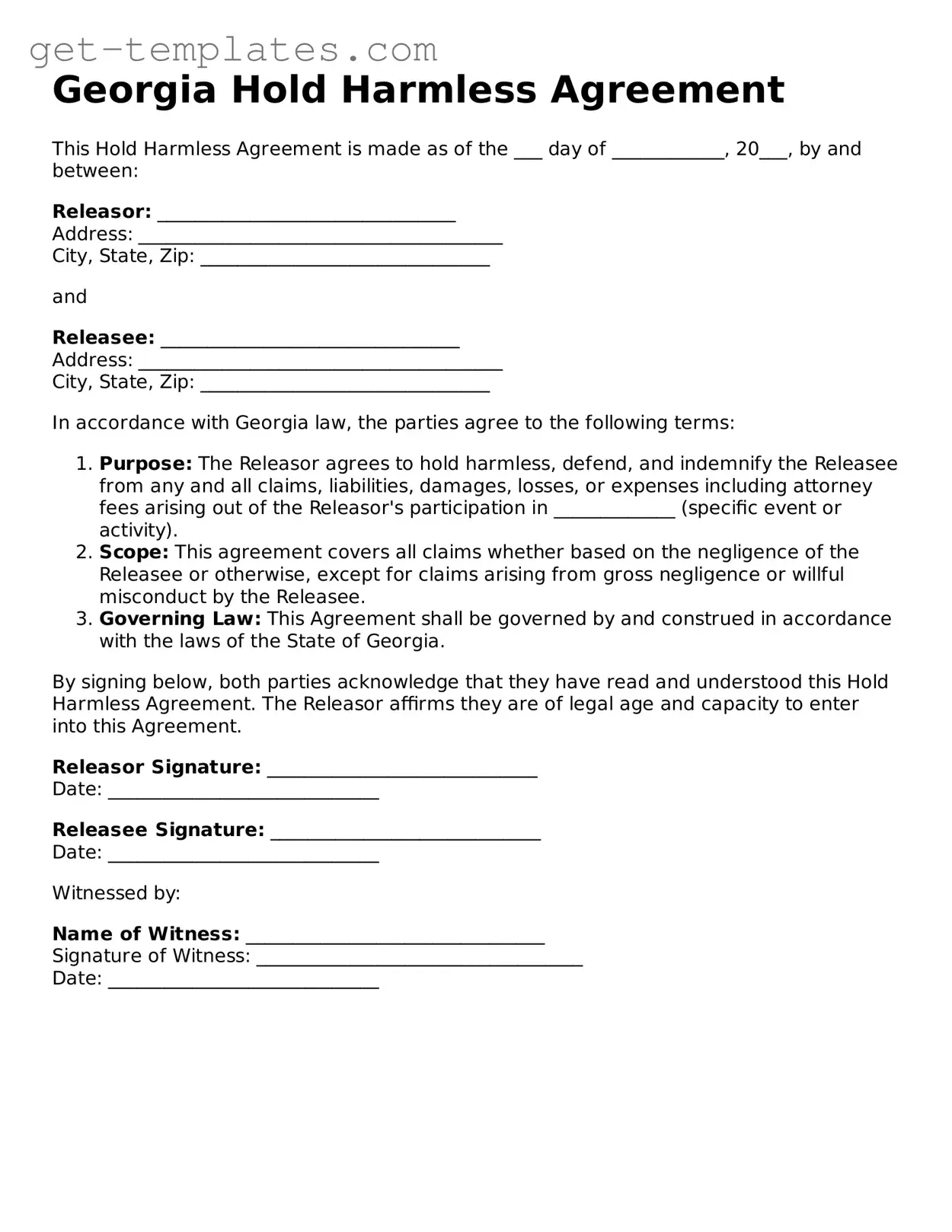Attorney-Approved Hold Harmless Agreement Document for Georgia
The Georgia Hold Harmless Agreement is a legal document that protects one party from liability for any injuries or damages that may occur during a specified activity or event. By signing this agreement, individuals or organizations agree to assume responsibility for any potential risks involved. This form is often used in various situations, such as events, construction projects, or recreational activities.
Get Document Online

Attorney-Approved Hold Harmless Agreement Document for Georgia
Get Document Online
You’re halfway through — finish the form
Finish Hold Harmless Agreement online — edit, save, download made easy.
Get Document Online
or
⇓ PDF Form
